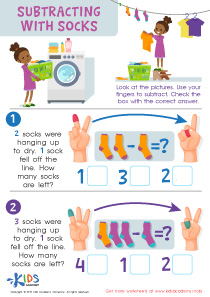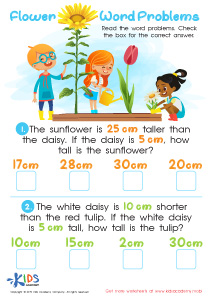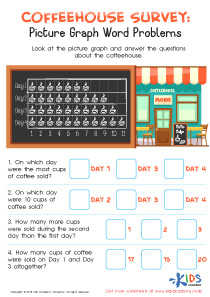Easy Addition and Subtraction Word Problems Worksheets for Ages 4-6
37 filtered results
-
From - To
Introduce your young learners to the world of math with our Easy Addition and Subtraction Word Problems worksheets! Crafted specifically for children aged 4-6, these educational printables are designed to engage and enhance early mathematical skills through fun and interactive content. Each sheet features a variety of easy-to-understand problems that help build foundational addition and subtraction skills. Perfect for both classroom use and home practice, these worksheets are an excellent tool to foster confidence and excitement about math in young minds. Boost your child's learning journey with our captivating worksheets and watch their love for math grow!
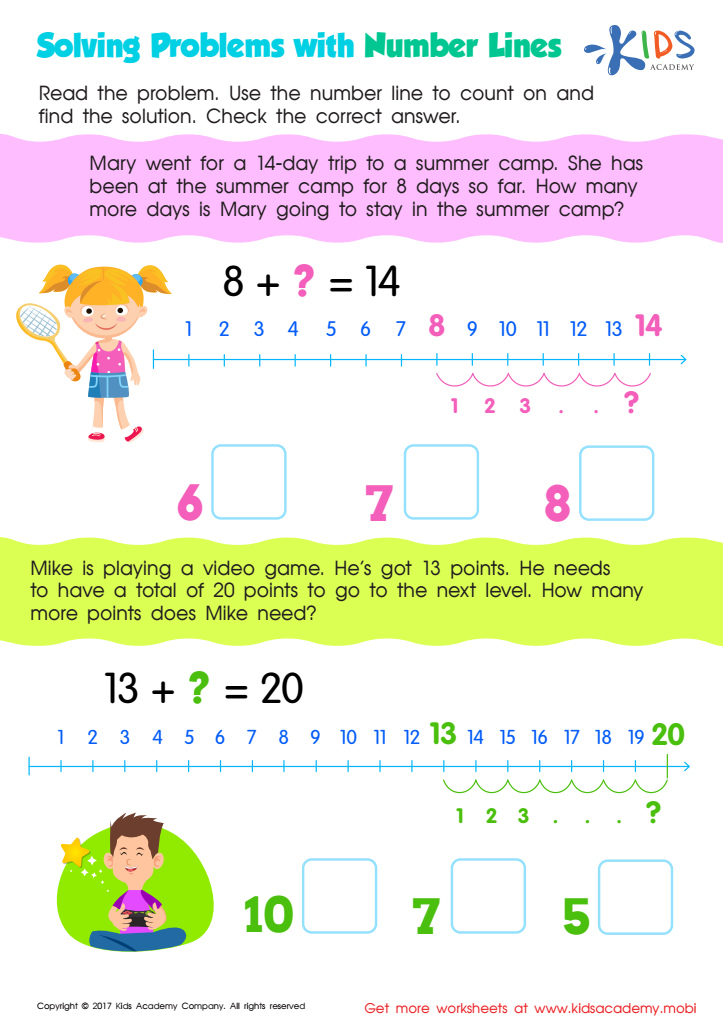

Solving Problems: Number Lines Worksheet
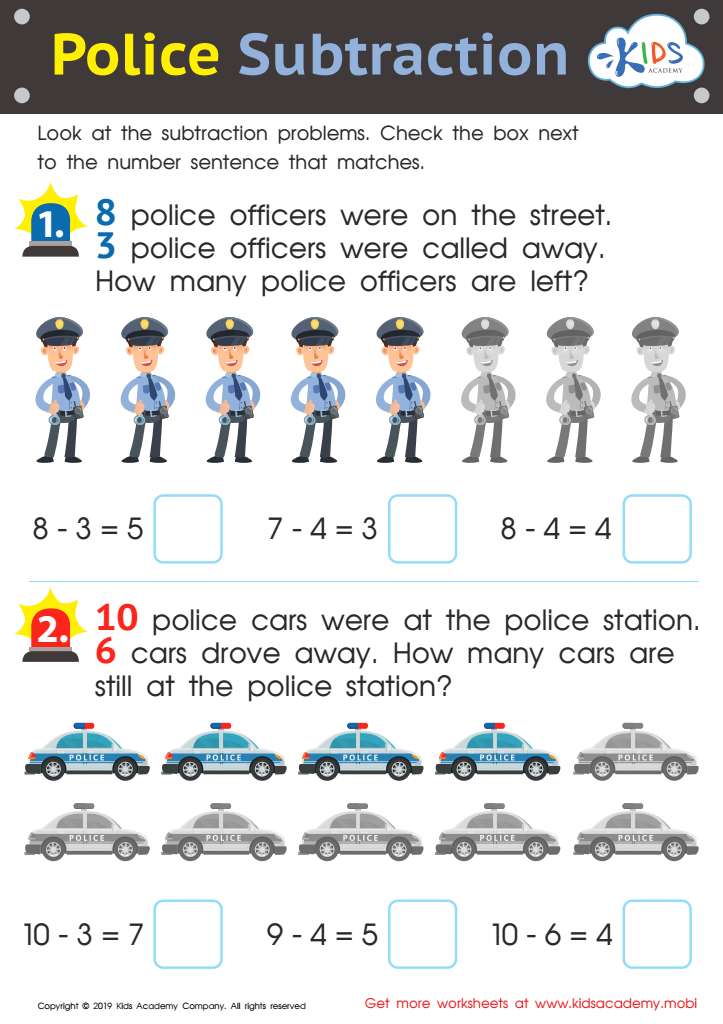

Police Subtraction Worksheet
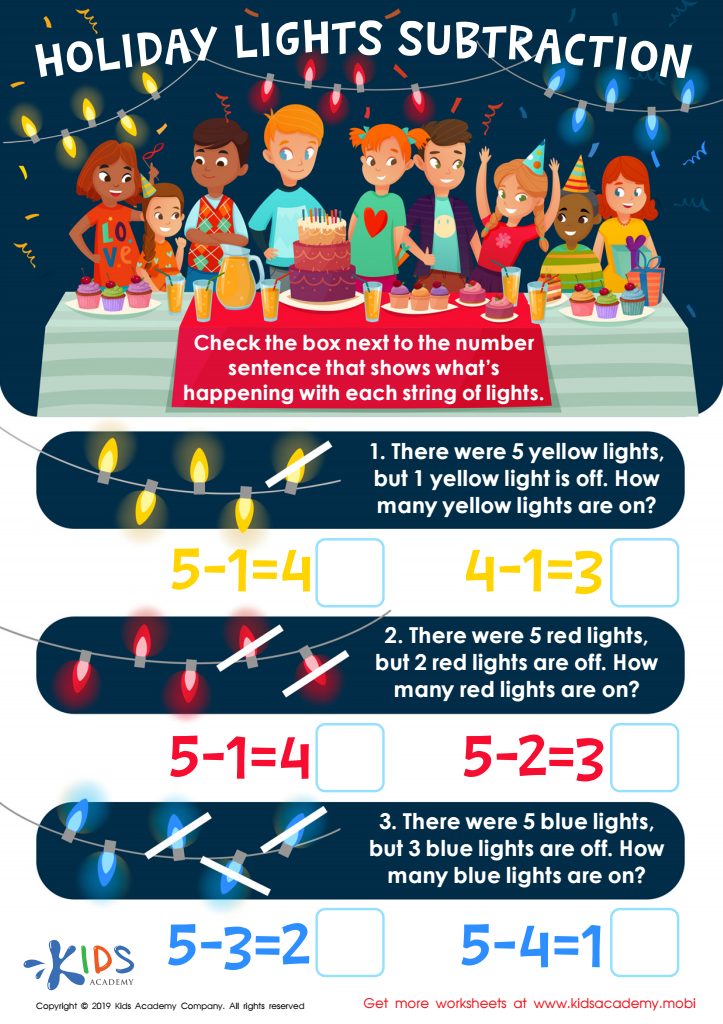

Holiday Lights Subtraction Worksheet
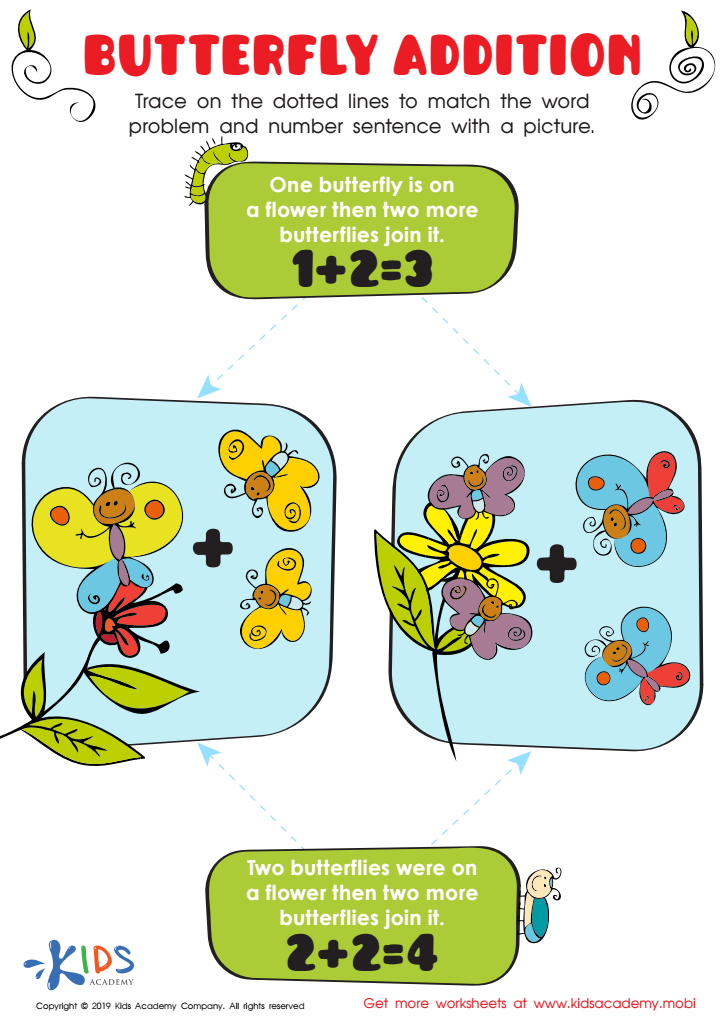

Butterfly Addition Worksheet
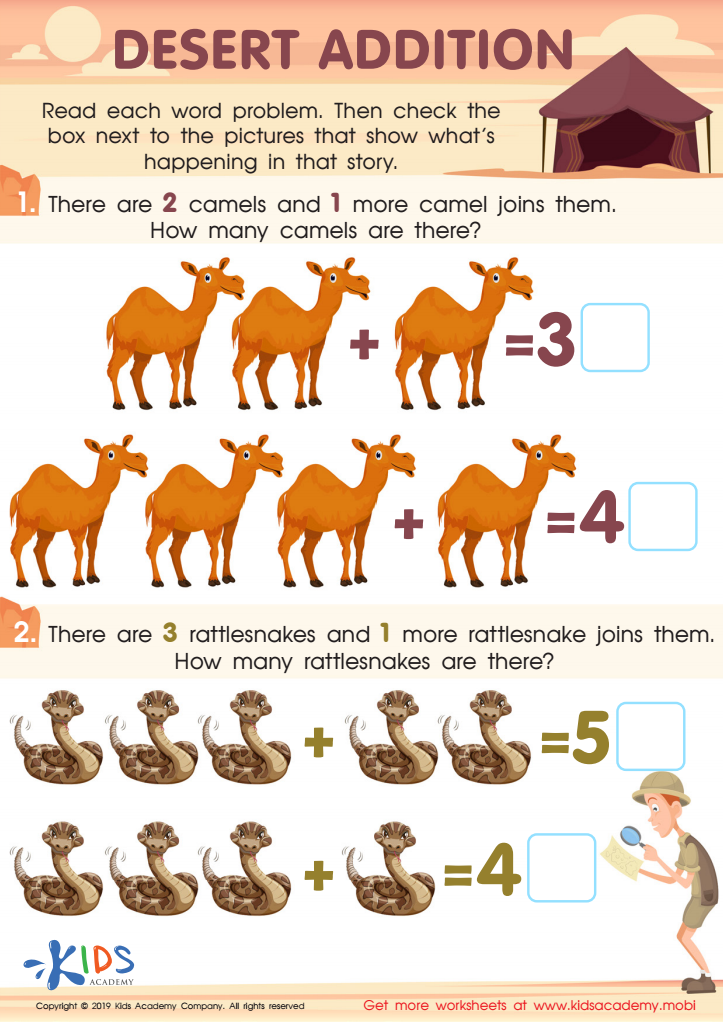

Desert Addition Worksheet
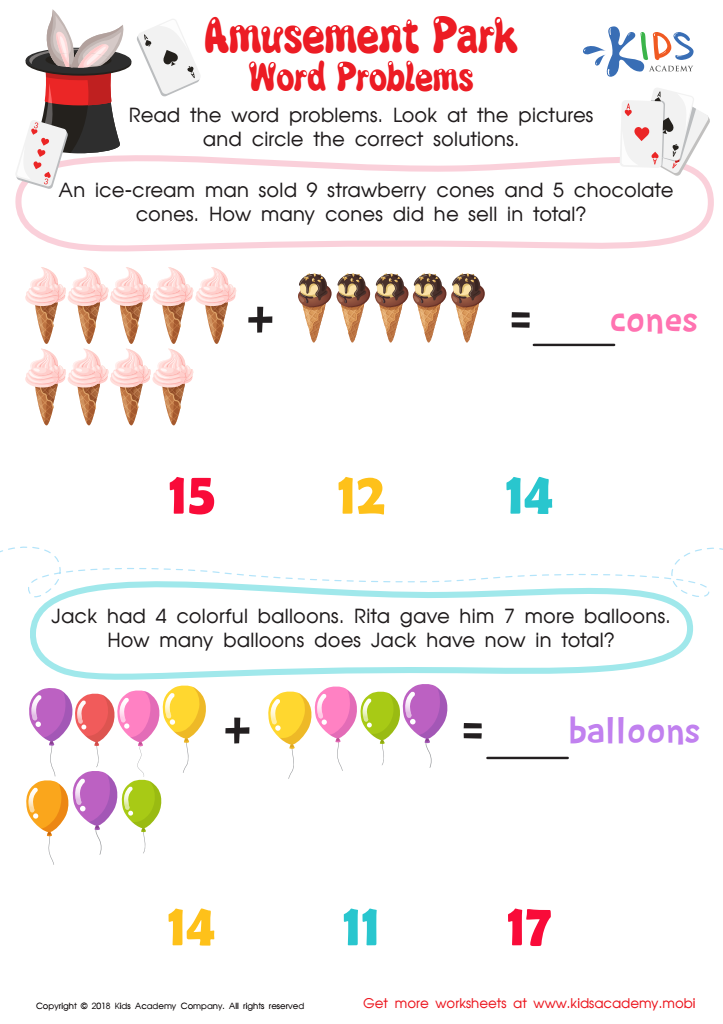

Amusement Park Word Problems Worksheet
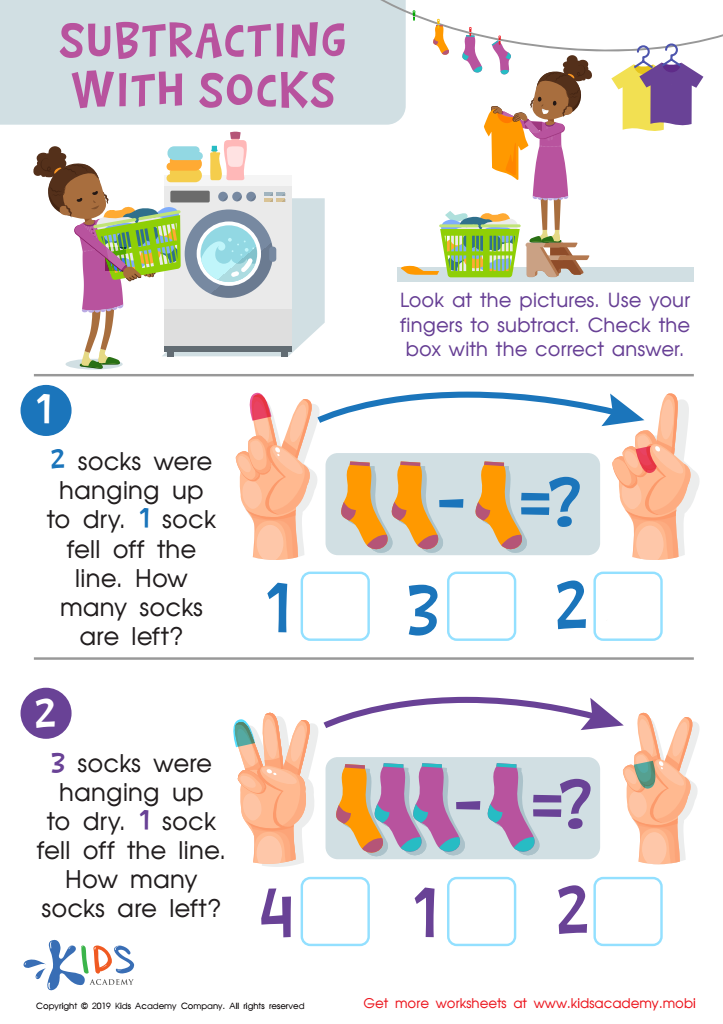

Subtracting Socks Worksheet
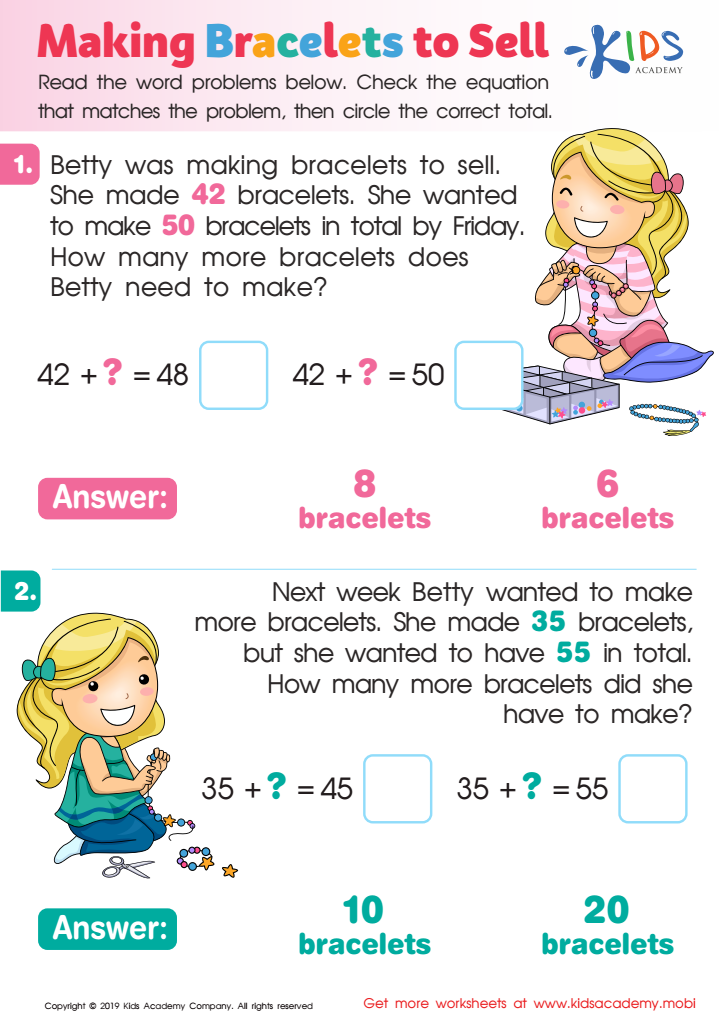

Making Bracelets to Sell Worksheet


Counting Seedlings Worksheet
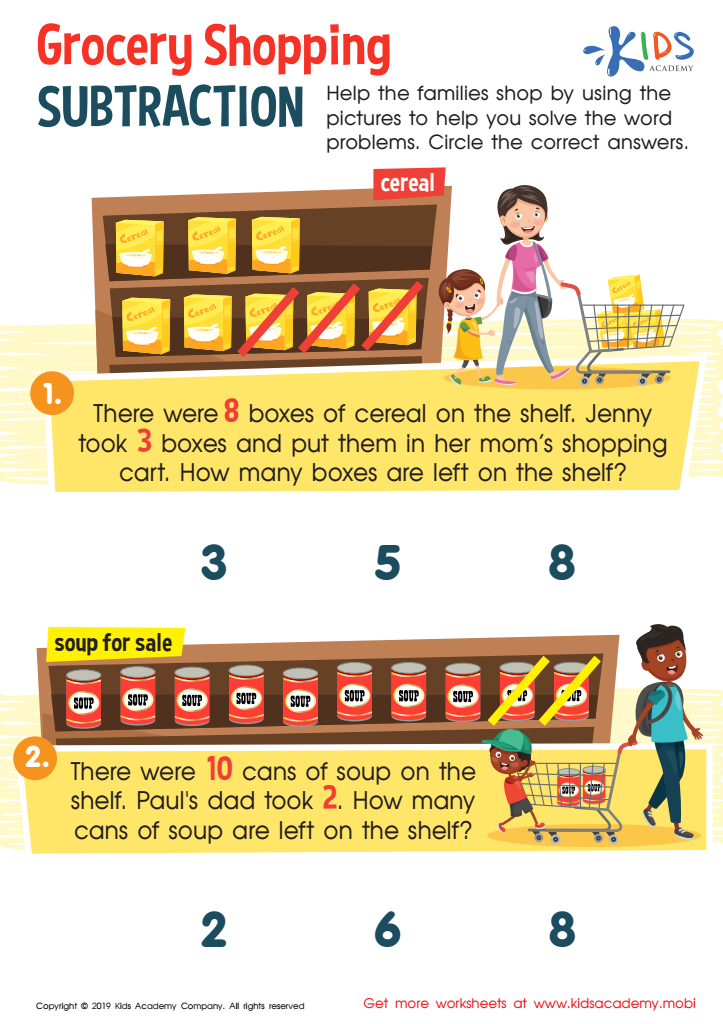

Grocery Shopping Subtraction Worksheet
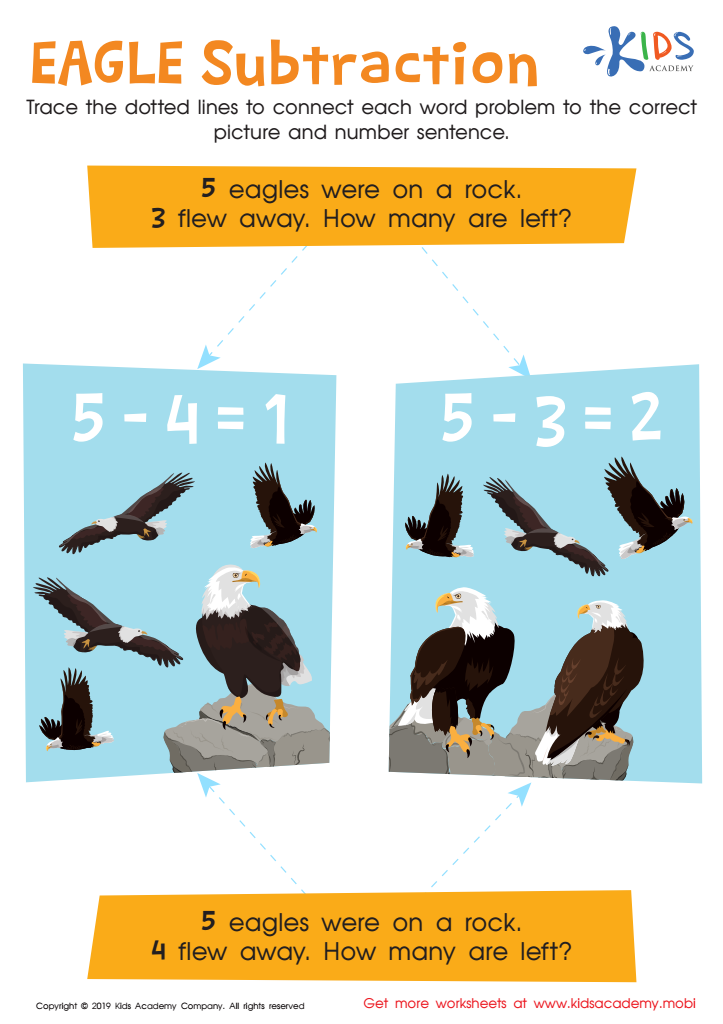

Eagle Subtraction Worksheet
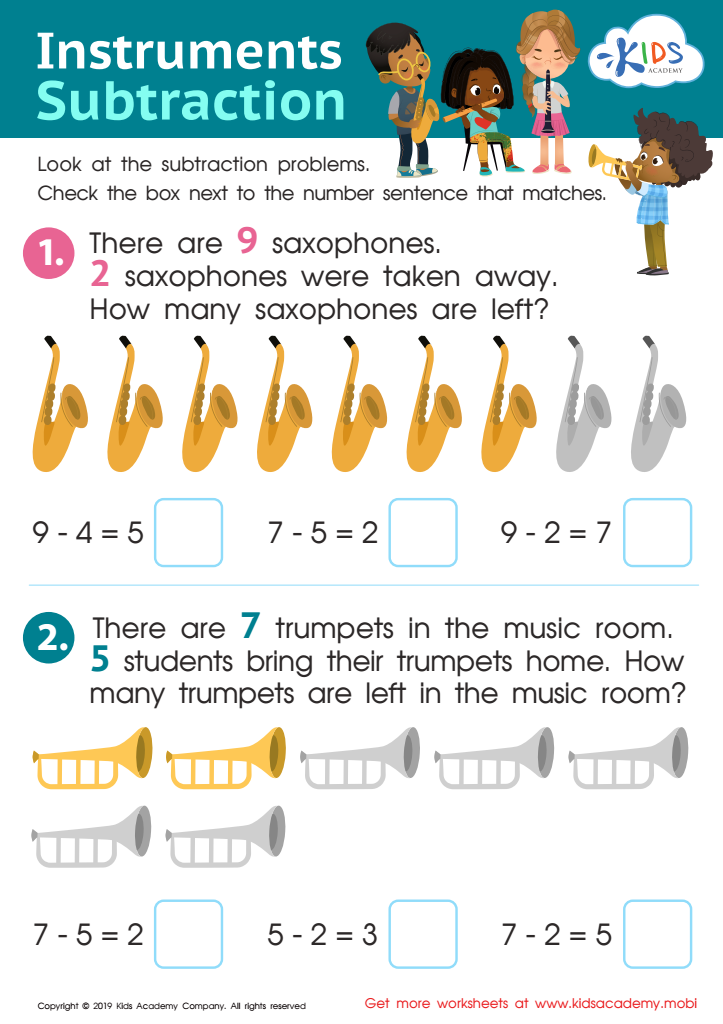

Instrument Subtraction Worksheet
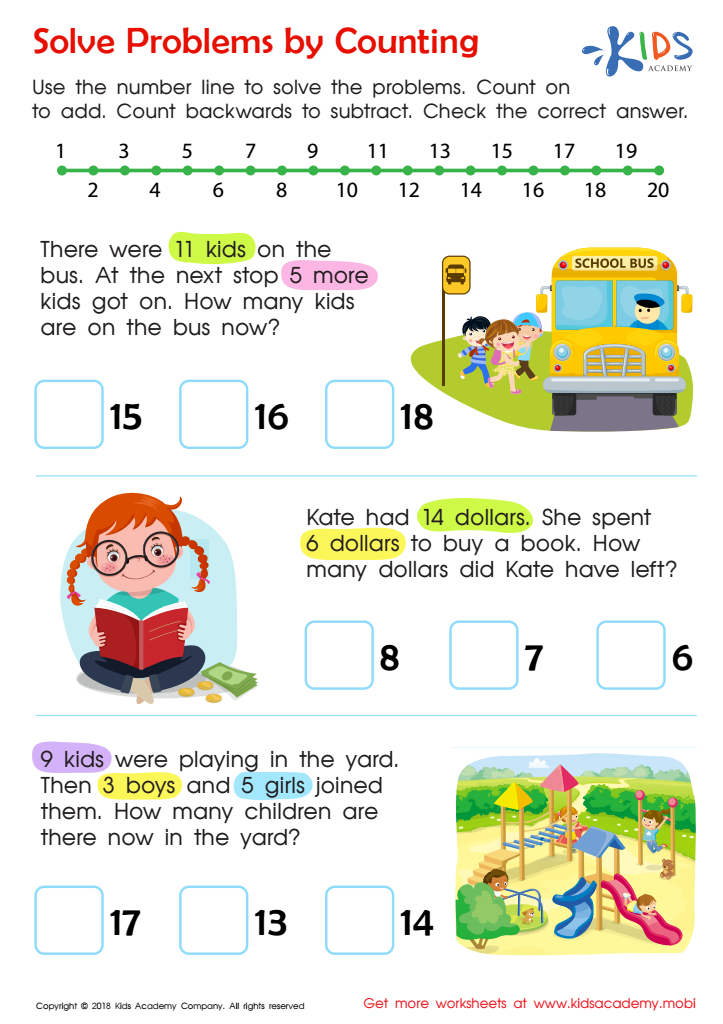

Solve Problems by Counting Worksheet
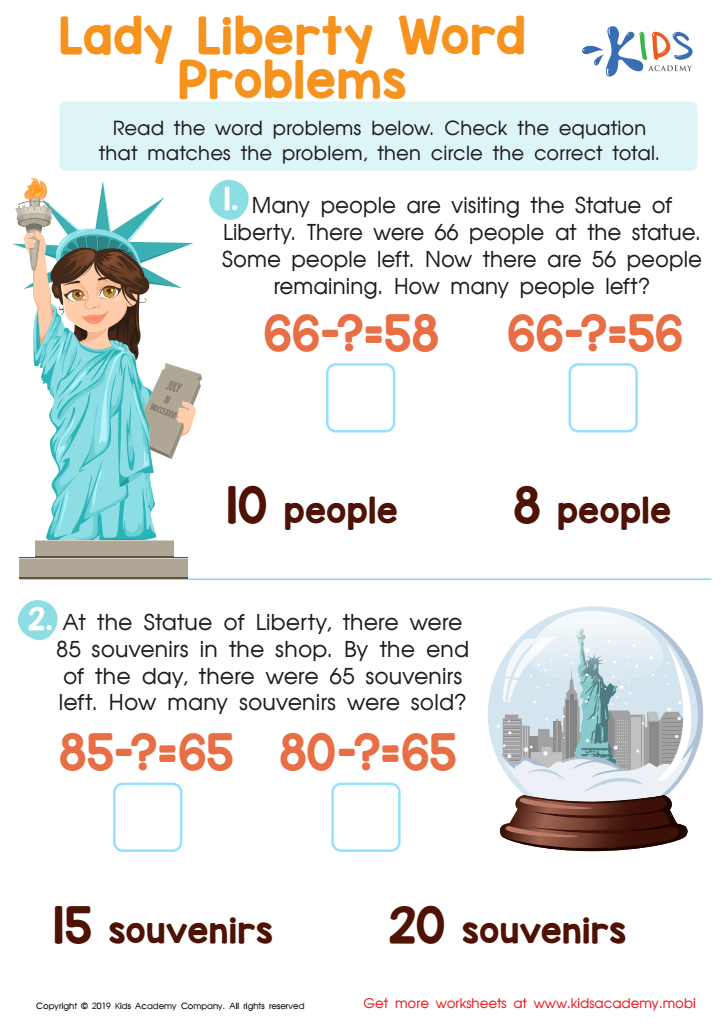

Lady Liberty Worksheet
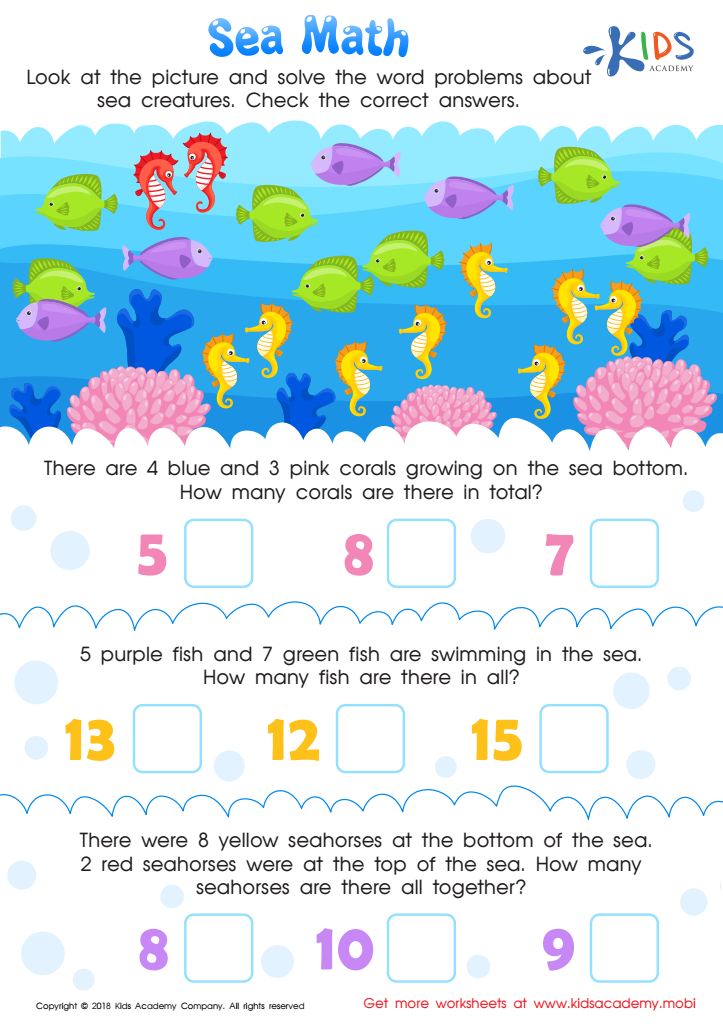

Sea Math Worksheet
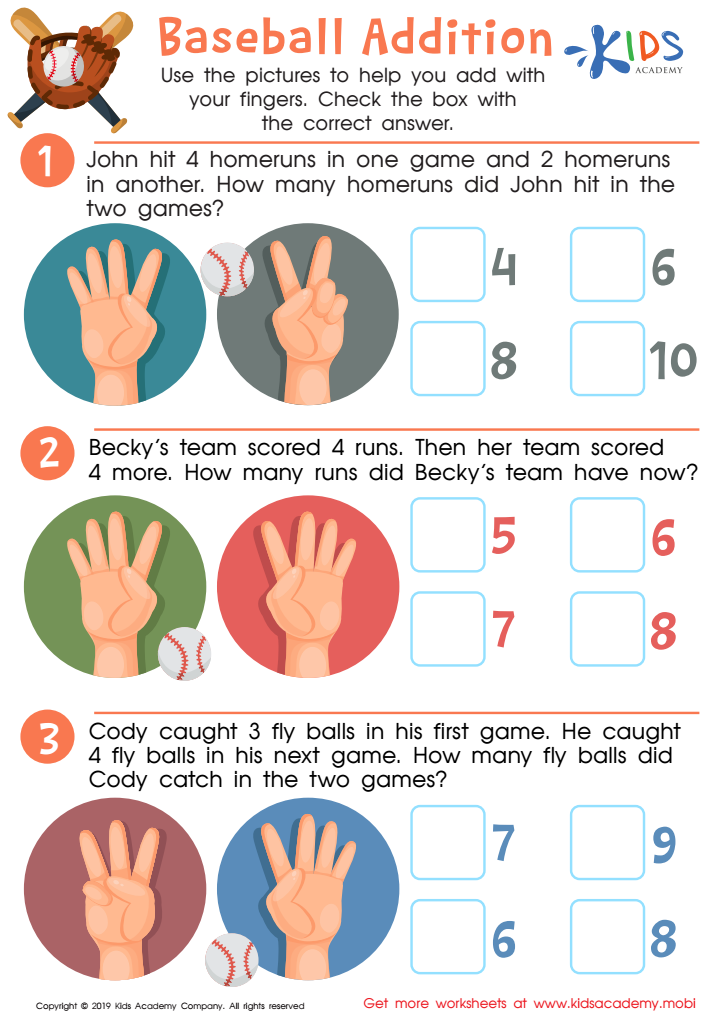

Baseball Addition Worksheet
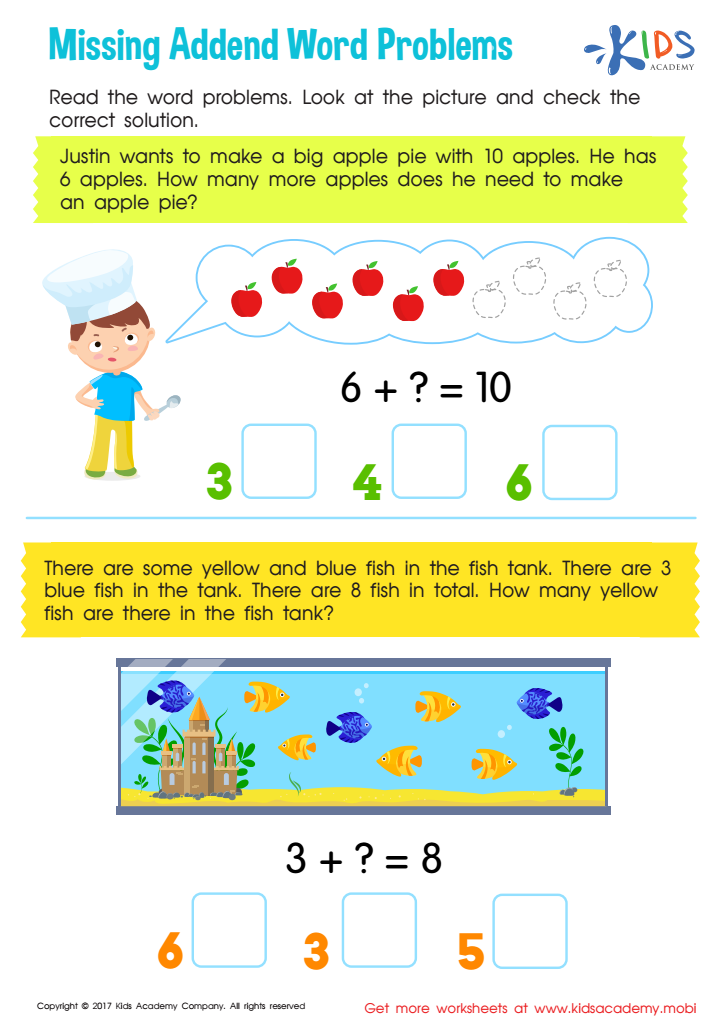

Missing Addend Word Problems Worksheet
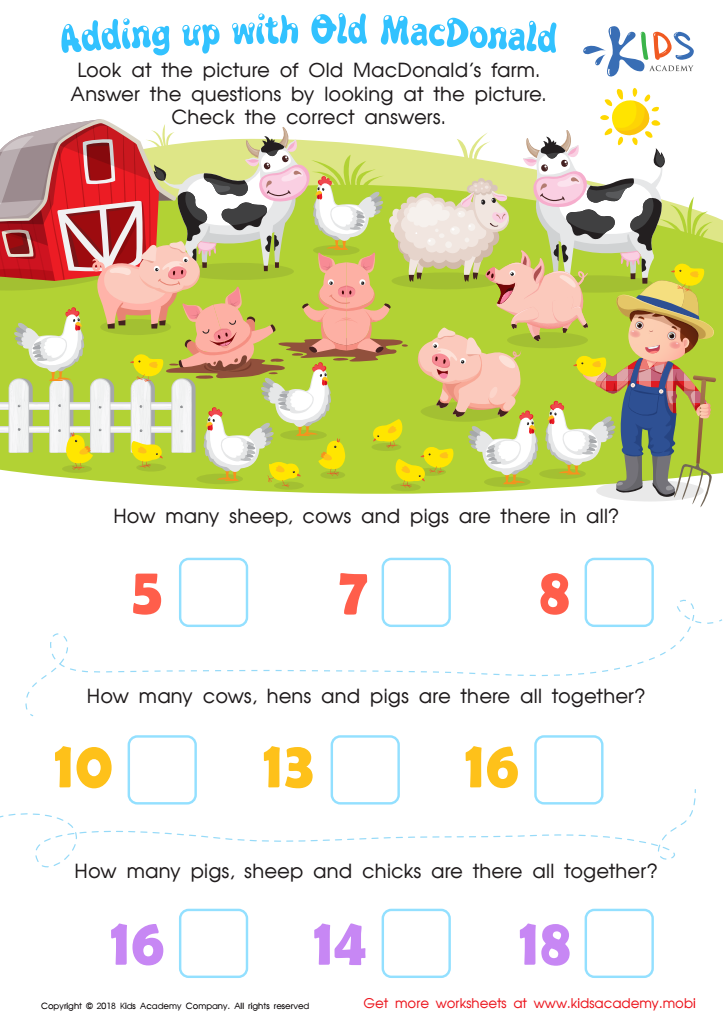

Adding Up with Old MacDonald Worksheet
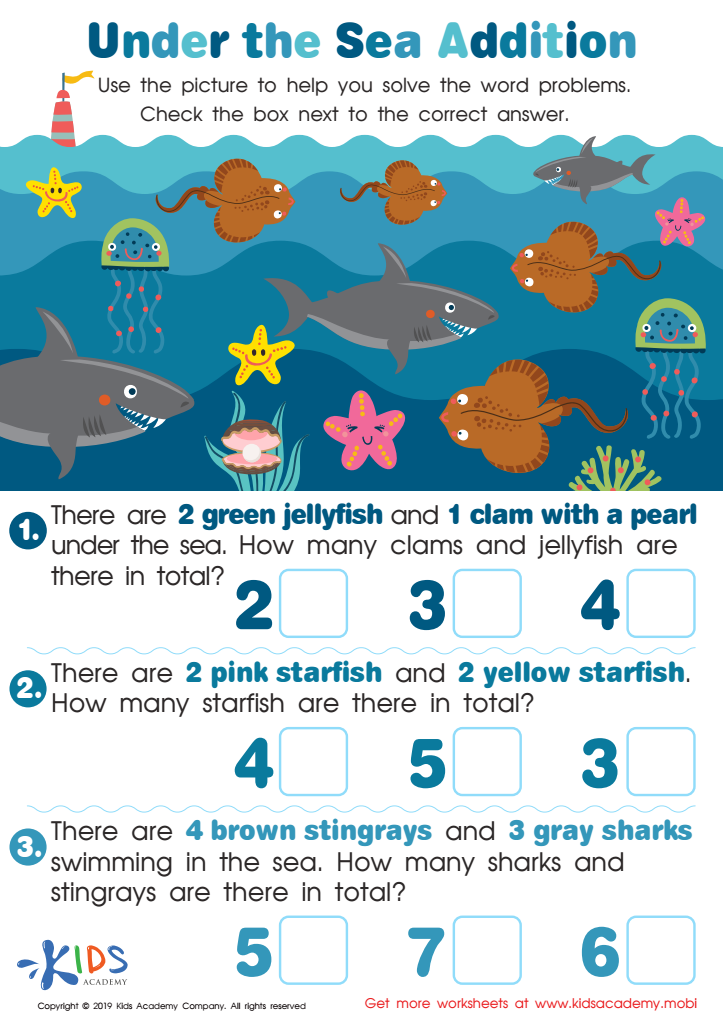

Under the Sea Addition Worksheet
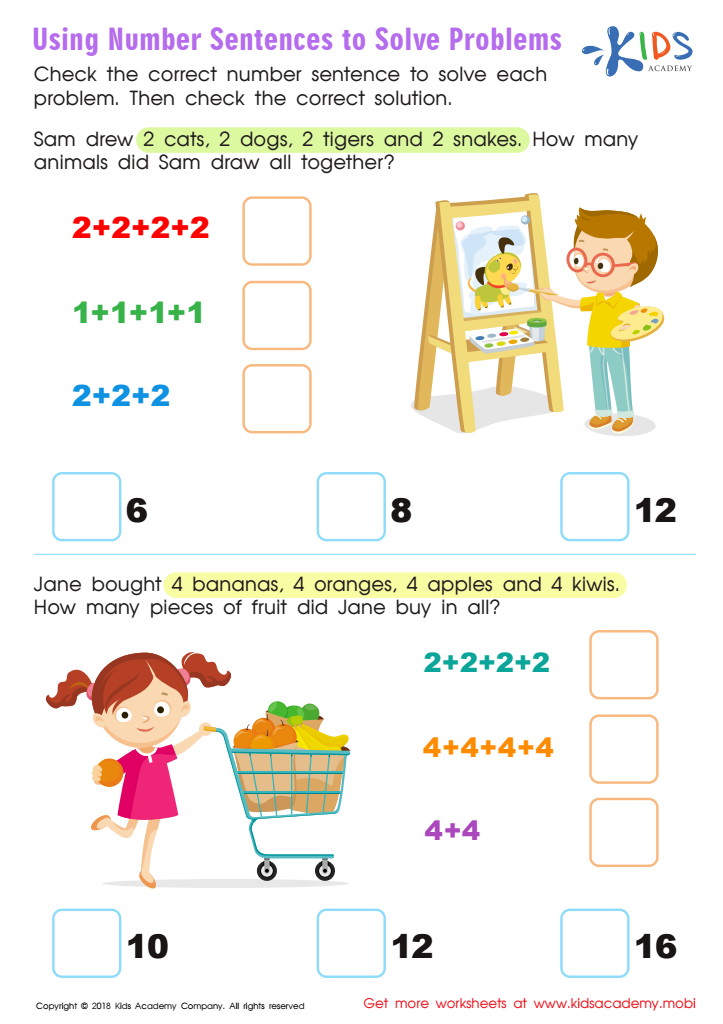

Using Number Sentences to Solve Problems Worksheet
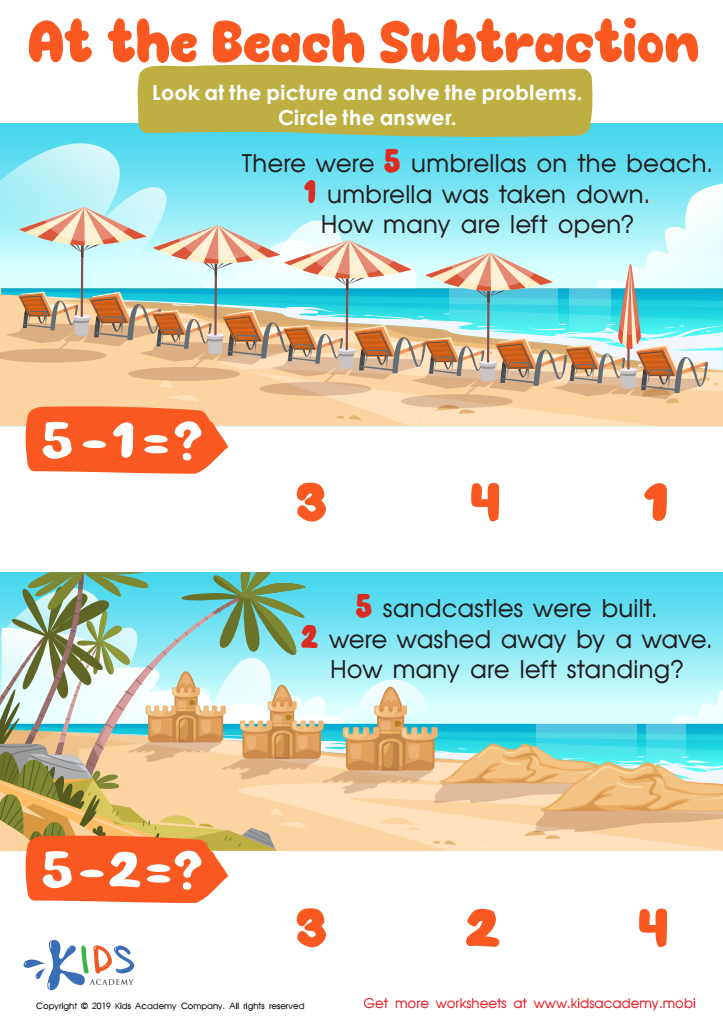

At the Beach Subtraction Worksheet
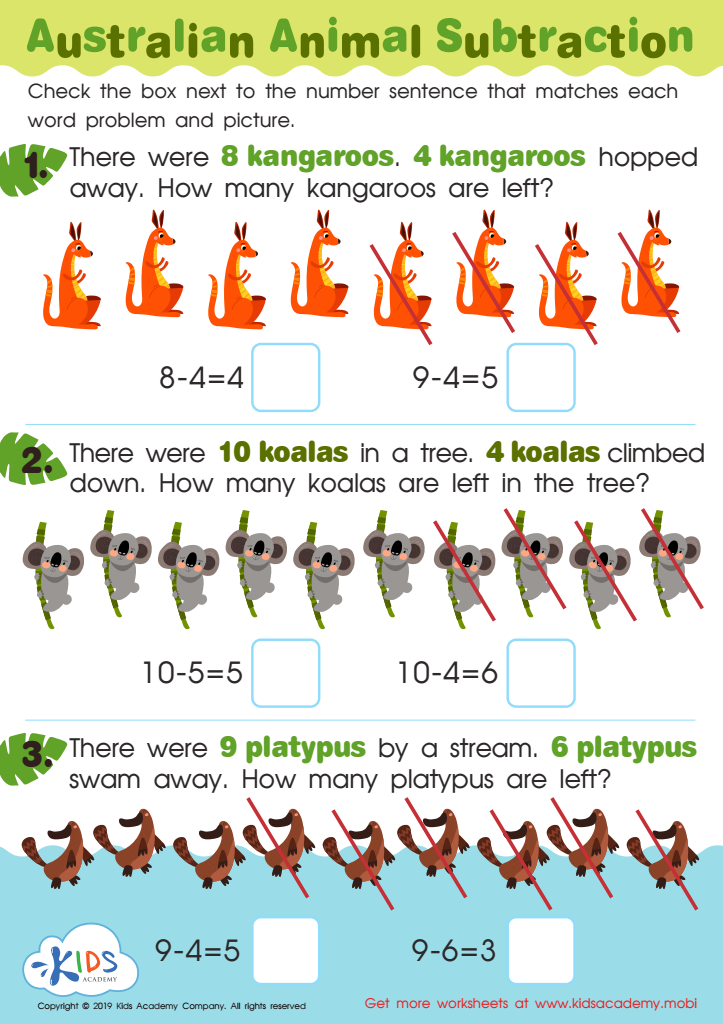

Australian Animal Subtraction Worksheet
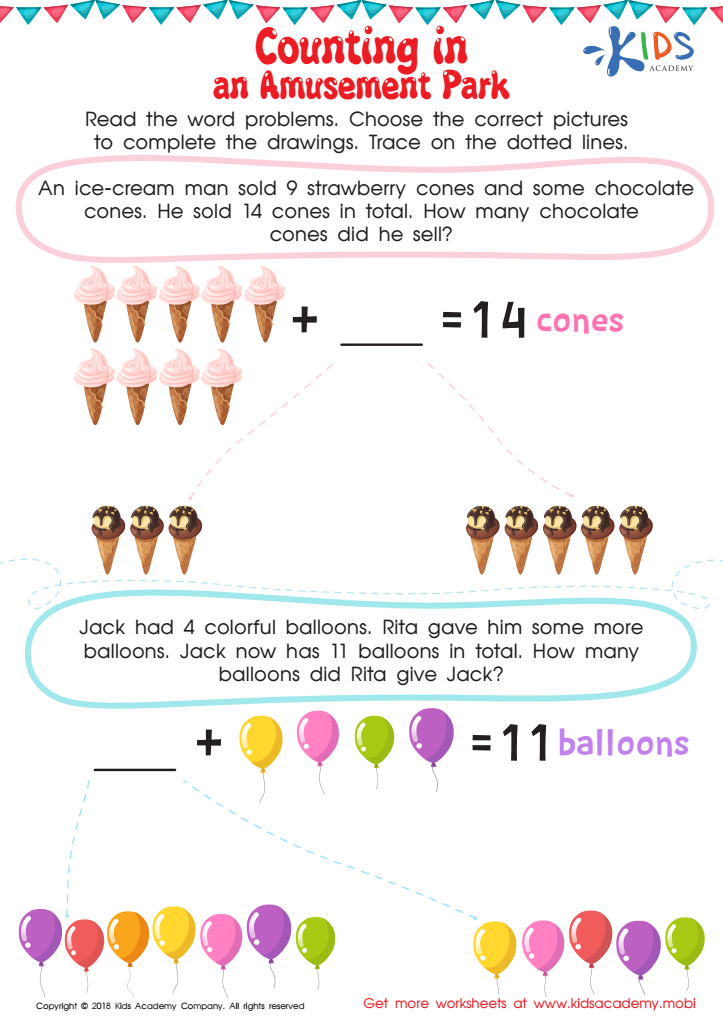

Counting in an Amusement Park Worksheet
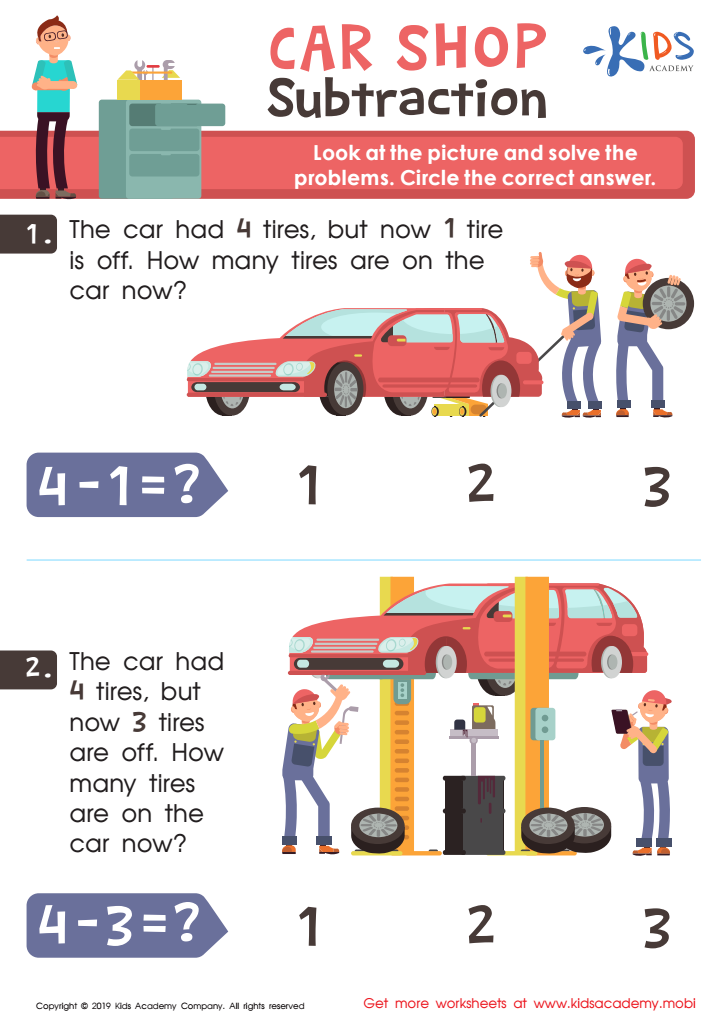

Car Shop Subtraction Worksheet
Educational online worksheets, particularly those focused on Addition and Subtraction Word Problems, are immensely beneficial for children aged 4-6 years. These worksheets serve as fundamental tools in introducing young learners to the basic concepts of mathematics in an engaging and interactive manner. Here, we will explore the various reasons why these easy worksheets are a vital element of early childhood education.
1. Building a Strong Mathematical Foundation: For young children, understanding the concepts of addition and subtraction is not just about learning numbers; it's about setting the groundwork for all future mathematical learning. Educational online worksheets designed with simple addition and subtraction word problems help children make sense of numbers in a practical context, thereby building a strong and intuitive sense of mathematics.
2. Developing Problem-Solving Skills: Word problems require children to read a short story or scenario and then solve a problem based on that scenario. This process is crucial as it teaches children how to think critically and develop problem-solving skills. By using educational online worksheets that focus on these types of problems, children learn to identify important information and apply basic arithmetic operations to find solutions.
3. Enhancing Cognitive Development: Easy worksheets on addition and subtraction help in enhancing cognitive development in young children. They learn to process information, analyze situations, and make logical connections between different pieces of information. These skills are essential not only in mathematics but in daily life situations as well.
4. Encouraging Independent Learning: Educational online worksheets offer the flexibility for children to learn at their own pace. These resources can be accessed from home, allowing children to practice whenever they are ready, thus promoting a sense of independence in their learning process. Parents and educators can guide them initially, but the intuitive design of these worksheets allows young learners to start taking initiative in their educational journey.
5. Making Learning Fun and Interactive: One of the standout features of educational online worksheets is their ability to make learning fun. With colorful graphics, interactive elements, and engaging content, children feel like they are playing while they are learning. This reduces anxiety around new concepts like addition and subtraction and increases their enthusiasm and engagement levels.
6. Providing Immediate Feedback: Many educational online worksheets are designed to provide immediate feedback once a child completes a problem. This instant feedback helps children understand what they did right and where they need improvement without the discouragement that waiting often brings. It also allows parents and teachers to track the child's progress more effectively.
7. Preparing for School Curriculum 8. Enhancing Language and Reading Skills:** While primarily focused on math, addition and subtraction word problems also inadvertently boost reading and comprehension skills. As children read through the problems, they must comprehend the scenario to apply the correct mathematical operations. This dual focus helps in improving both their language skills and their numerical abilities, making educational online worksheets particularly valuable.
9. Encouraging Engagement with Parents and Teachers: Interactive and easy-to-use educational online worksheets encourage a collaborative approach to learning. Parents and teachers can participate more actively in the child’s learning process by discussing the word problems, guiding them through the solutions, and encouraging them to think out loud. This not only helps in reinforcing mathematical concepts but also strengthens the child’s communication skills and their ability to articulate their thought processes.
10. Adapting to Individual Learning Styles: Children aged 4-6 years have varied learning styles—some learn better through visual means, while others prefer auditory learning or learning by doing. Educational online worksheets often come with features that cater to these different styles, such as visual aids, read-aloud options, and interactive elements that require manipulation. This adaptability makes them an excellent tool for personalized learning, ensuring that each child’s unique needs and preferences are met.
11. Promoting Consistent Practice: Regular practice is key to mastering any skill, and mathematics is no exception. Educational online worksheets provide an endless resource of problems to solve, which is crucial for practice. The more children engage with addition and subtraction problems, the more proficient they become. This consistent practice helps in reinforcing their learning and improving their speed and accuracy over time.
12. Transitioning Smoothly to More Advanced Concepts: Early exposure to structured word problems through educational online worksheets prepares children for more advanced mathematical concepts and problem-solving strategies. As they grow older, they will encounter more complex problems in school. A solid foundation built through engaging with these worksheets ensures they face these challenges with confidence and a better understanding.
In conclusion, educational online worksheets focusing on addition and subtraction word problems are an invaluable resource for children aged 4-6 years. They not only lay the groundwork for mathematical understanding and cognitive development but also make learning an enjoyable and interactive experience. By integrating these tools into early education, we can ensure that children develop a love for learning and a curiosity that will benefit them throughout their educational journey.

 Assign to My Students
Assign to My Students








